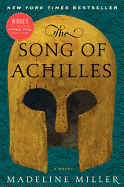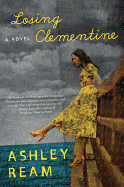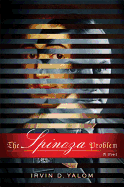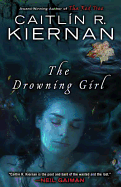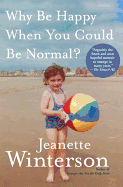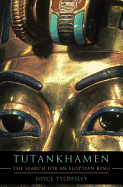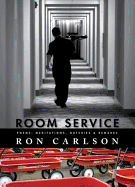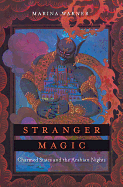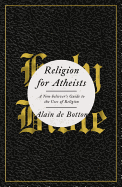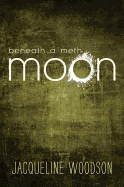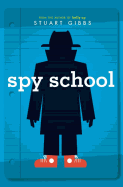March Madness starts this week, and the "mad" part started for me last Thursday when the University of Washington Huskies broke the piece of my heart not devoted to the Seattle Mariners by losing their first PAC 12 tournament game. What? The Huskies are the PAC 12 Conference champions! They lost to my second favorite basketball team, Oregon State University, who then lost to Arizona. Now whom do I root for? VCU? Florida State?
With all the basketball madness in the air, it's interesting to note that there are not many books about basketball. Football, yes; many more about baseball (well, of course), and soccer books are coming along. The benchmark for basketball books remains David Halberstam's magnificent The Breaks of the Game, about the 1979-80 Portland Trailblazers--a masterful dissection of the NBA, the money and media that have shaped the game and a story of dreams both reached and denied.
There are two new basketball books that any fan would enjoy, with appeal beyond fandom. Don't Put Me In, Coach by Mark Titus is about an Ohio State walk-on who rode the bench for four years--it's hilarious and often serious. He tells about declaring for the NBA draft, hoping for a few stories for his blog (he now writes for Grantland). The NBA insisted he withdraw because he was making a mockery of the draft, but by forcing Titus out, they made more of a mockery than he ever could. His stories about his teammates and games are illuminating and very funny. Keep this one in mind for a Father's Day gift.
Brave Dragons by Jim Yardley is subtitled A Chinese Basketball Team, an American Coach, and Two Cultures Clashing. "Cultural misunderstandings" barely begins to describe what happened when former NBA coach Bob Weiss agreed to coach the Shanxi Brave Dragons pro team; "cultural abysses" is more like it. The team's owner, Boss Wang, wanted Weiss to turn the Dragons into an American-style team, but thwarted Weiss at every turn. Add Chinese players with no freedom to break out of their strictures, a few non-Chinese players with culture shock, and you get a fascinating look at both basketball and China. --Marilyn Dahl, book review editor, Shelf Awareness
Losing Clementine
by Ashley Ream
In Ashley Ream's poignant, engaging debut novel, Losing Clementine, clinically depressed Los Angeles artist Clementine Pritchard has allotted herself 30 days to live. With this decision, she sets out to tie up all loose ends, from hitting the obnoxious parked car that is always in her way to finding a new home for her cat. She encounters a handful of characters from her past along the way--people she must make amends with before she goes--but no meeting is more painful or comforting than Clementine's reunion with the father who abandoned her family when she was barely old enough to remember him. During this journey, she becomes aware of a truth she had locked away carefully inside herself--a truth that explains her need to end her life but, ironically, may give her the will to start over again.
Ream peppers her moody story with Clementine's biting wit and an unconventional take on what is left of her life that will, at times, have the reader laughing out loud. She balances Clementine's humorous qualities with more thoughtful, reflective passages looking back to the circumstances that have led her to make such a drastic decision. Vague recollections of a dark and painful past come to life as emotional, colorful paint splashes through the author's vivid imagery. Ream's candid, conversational writing style holds the reader rapt, and although the story unfolds at a relatively relaxed pace, the reader will find herself counting down through the days with Clementine, eager to see whether she goes through with her plan. Fans of dark humor have found a new favorite. --Sarah Borders, librarian at Houston Public Library
Discover: An offbeat, unforgettable character in a captivating novel from a bright and enchanting new voice.
The Spinoza Problem
by Irvin D. Yalom
A book delving into the intellectual and spiritual beliefs of 17th-century Jewish philosopher Baruch Spinoza would be highly intriguing. Just as impressive would be a book following the personal development of Alfred Rosenberg, a philosopher instrumental in shaping and documenting Nazi ideology. Imagine, then, how enticing a novel juxtaposing the lives of these two men would be for many readers. Luckily, Irvin D. Yalom has written just such a novel: The Spinoza Problem.
Yalom, a psychiatrist in private practice, has written extensively about psychotherapy, in both nonfiction (Theory and Practice in Group Psychotherapy) and fiction (When Nietzsche Wept). He is the perfect author to bring together Spinoza and Rosenberg in a novel, with chapters that alternate between the two characters' respective time periods.
The Spinoza Problem could be considered a "teaching novel"; using extensive sections of dialogue between characters, often in a manner suggestive of psychotherapy, Yalom gives voice to Spinoza's bold theories and Rosenberg's somewhat tortuous exploration of Spinoza (by way of Goethe) during his development as a Nazi ideologue. Though categorized as fiction, The Spinoza Problem informs the reader of the passionate ideas of Spinoza and the disturbing mindset and writings of Rosenberg. Indeed, most readers will be intrigued enough by this novel to seek out further works about Yalom's two subjects, as well as his other works. --Roni K. Devlin, owner of Literary Life Bookstore & More
Discover: A highly intriguing exploration of the connections between a Jewish philosopher and a Nazi ideologue.
The Song of Achilles
by Madeline Miller
In The Iliad, Homer describes 10 years of the Trojan War, the events leading up to the war and the continual interference of the gods in the affairs of mankind. Several themes are underlined--fate, honor, wrath and that most Greek combination of pride and arrogance, hubris. But one thing The Iliad is never billed as is a love story. Until now.
Debut author Madeline Miller builds a brilliant novel around the love story at the heart of The Iliad between its key figure, Achilles, and his companion Patroclus. She chooses the little-known Patroclus as her narrator, creating a fascinating and complex character: the son of a king, stripped of his title and exiled to tiny Phthia to be fostered by Peleus, father of Achilles.
The boys become friends, and Achilles' destiny as a great warrior soon becomes evident, as do the deeper feelings developing between the two. But there are dark clouds hanging over this nascent romance--the prophecy that Achilles will die in battle, and Achilles' mother, the immortal and embittered sea-nymph Thetis. All too soon, Achilles and Patroclus must go to war.
The slow, sunlit pace of the novel undergoes a rapid shift once the scene moves to Troy. Miller's battle scenes combine thrilling action and subtle shifts in mood; it is here that she captures her readers most completely, tying the intimate story of Achilles and Patroclus to larger, resonant themes of honor, friendship and self-determination. Her lens is panoramic, her battlefield wide and bloody; it is a testament to Miller's prodigious talent that all of her scenes--whether describing the chaos of war or the secrets whispered between lovers--are equally powerful and nuanced.
It is no small task to take on The Iliad, never mind the myths on which it is based, and come out so far ahead. With this dazzling jewel of a novel, Madeline Miller has proven more than worthy of the challenge. --Debra Ginsberg, author
Read more about The Song of Achilles in our Maximum Shelf.
Discover: A brilliant debut novel that uncovers the love story at the heart of The Iliad.
Science Fiction & Fantasy
The Drowning Girl
by Caitlin R. Kiernan
Caitlin R. Kiernan's The Drowning Girl works on many levels. It is simultaneously an old-fashioned New England ghost story and a study in madness and the fluidity of identity when madness descends. India Phelps (nicknamed Imp), a girl whose family tree need be shaken only lightly to encounter crazy ancestors, is dealing with the onslaught of schizophrenia herself, making her a perfect example of the unreliable narrator. Imp is an artist and keen student of art history, threads that will be essential to Kiernan's (Silk; Daughter of Hounds) plot.
Imp has several encounters with what could be ghostly apparitions--or manifestations of her own growing madness. Kiernan excels throughout at developing the atmosphere and ambiguity, veiling events with just enough mist to keep the reader (and Imp) guessing at what's going on. In the midst of the darkening mood, Kiernan works in some great asides about feminism, gender and sexual identity. Imp is a lesbian with a transsexual girlfriend; the outsider motifs elaborated through these characters add a depth to the novel. Kiernan also makes wise use of fairy tales throughout, with Little Red Riding Hood being of particular, chilling importance. While Imp loses her hold on reality, Kiernan never loses control of the narrative and her use of language expertly mirrors Imp's wounded psyche. The Drowning Girl is a fine novel that is also a study of art and the fragility of the sense of self, haunting in the deepest sense. --Donald Powell, freelance writer
Discover: An atmospheric ghost story that serves up intelligent commentary on madness and the nature of art.
Food & Wine
Chloe's Kitchen: 125 Easy, Delicious Recipes for Making the Food You Love the Vegan Way
by Chloe Coscarelli
Chloe's Kitchen just might be the friendliest, most affirming cookbook ever published, from the introduction ("You can cook!") to the acknowledgments ("It is because of you that we can all work together to spread health and happiness through the food we cook.") Chloe Coscarelli believes all of her readers can cook if they believe in themselves, so her recipes involve common ingredients and easy techniques, and she encourages her readers to get creative whenever possible and take shortcuts whenever needed--even providing suggestions on how.
Drawn to vegan cooking through a love of animals and a hope for healthful living, the classically trained Coscarelli--the first vegan chef to win on the Food Network show Cupcake Wars--has filled Chloe's Kitchen with "flavor-loaded, moist and juicy, ooey-gooey, party-in-your-mouth recipes that no one will ever believe are vegan." After a foreword from Dr. Neal D. Barnard assuring readers a vegan lifestyle is healthy and safe, this upbeat, accessible cookbook provides a pantry of ingredients to try, explains the health benefits of those ingredients as they appear in each recipe and even explains how to prepare gluten- and soy-free vegan food. Frequent "Chloe's Tips" help readers navigate any common issues, such as how to keep phyllo dough from drying out or how to clean sandy leeks. Coscarelli's enthusiasm is infectious: cooking becomes fun in her kitchen! --Kristen Galles from Book Club Classics
Discover: A fun investigation of healthy, compassionate cooking, led by the first vegan Food Network champ.
Biography & Memoir
Why Be Happy When You Could Be Normal?
by Jeanette Winterson
In Why Be Happy When You Could Be Normal?, Jeanette Winterson pairs a history of her fierce girlhood with the saga of her midlife search for her biological mother, whom her adoptive mother had always pronounced dead. Many of the events Winterson describes in her memoir echo scenes from Oranges Are Not the Only Fruit, her 1985 debut novel that won the Whitbread Award (but not her mother's respect). Neither book subsumes the other, though: where the novel's set pieces projected outward with black humor, the memoir peers inward with a startlingly compassionate attitude.
The title comes from a question posed by Winterson's adoptive mother, a Pentecostal evangelical from the north of England, after neither exorcism nor the threat of banishment compelled 16-year-old Jeanette to renounce her love for another girl. Mrs. Winterson's idea of being normal included wallpapering all through the night to avoid her conjugal bed and routinely locking her daughter in the coal-hole.
Winterson skips from her undergraduate days at Oxford to her 40s; the memoir's second half chronicles her mental breakdown after she finds adoption documents in her father's possessions. She is helped through the subsequent legal quest for the truth about her biological parents by her lover, psychotherapist and author (Fat Is a Feminist Issue) Susie Orbach.
Winterson's memoir is a tribute to the salvation of narrative, a salvation she found as a teen on the shelves of the public library, in the paperbacks she bought with her wages and hid under her mattress (until Mrs. Winterson burned them) and in the books she went on to write herself. --Holloway McCandless
Discover: Jeanette Winterson's memoir reveals her fundamentalist childhood (fictionalized in Oranges Are Not the Only Fruit) and chronicles her quest for the truth about her biological mother.
History
Tutankhamen: The Search for an Egyptian King
by Joyce Tyldesley
Joyce Tyldesley (Cleopatra: Last Queen of Egypt) takes on the life of King Tutankhamen, examining the many questions still surrounding his life and the archeology of his tomb, whose discovery in 1922 caused a wave of what Tyldesley calls "Tut-mania" across the Western world. As a king, Tutankhamen came to rule very young, yet managed to effect great change during his short reign--but was then removed from written records by his successors, an act with great consequence in ancient Egyptian theology. His tomb is unusual: relatively undisturbed, and as Tyldesley retraces, surrounded by mystery and myth.
The first, larger part of Tutankhamen is devoted to the archeological record and what it tells us about Tutankhamen and some of his relatives. Tyldesley discusses and critiques various theories (for example, regarding his biological parents) and acknowledges that little is known for certain. Next, she examines Tutankhamen's legacy in our world--most notably, the rampant myths and legends about the curse on his tomb, which spread as quickly as the news of its discovery. Finally, for those interested in a clear storyline, she outlines her best approximation of Tutankhamen's life story (while noting that it is only a well-educated theory).
Tutankhamen succeeds in making this ancient monarch accessible to the average reader. Beware of developing an appetite for Egyptology upon reading! --Julia Jenkins, librarian and blogger at Pages of Julia
Discover: A new biography of a very old figure still shrouded in mystery.
Essays & Criticism
Room Service: Poems, Meditations, Outcries, and Remarks
by Ron Carlson
Ron Carlson is primarily known as an award-winning novelist (The Signal) and short story writer, but he also writes very good poetry and other literary sundries, as Room Service demonstrates. He's the master of the ordinary, with a voice reminiscent of Steven Wright's comedy--droll, restrained, deadpan. He's hardly ever smiling, but inside he's laughing out loud (and readers with him). He reveals how the ordinary is absurd, and the common unique.
Here are a number of poems, short to very short prose pieces, and a handful of Beckettian mini-plays that Carlson has written over the years. His titles are just right and capture a zany, warm, welcoming feeling: "The Great Open-Mouth Anti-Sadness" or "A Simple Note on How Best to Use This Humble Bookmark." Some pieces are like fractured fairy tales, like the couple who use room service to order up rooms, from a glass room to a cloak room. In "Homeschool Insider," a brother and sister try to decide what their (home) school colors should be. "What I Did Not Teach You About Poetry" is a beautiful piece (lengthy for Carlson, at three pages) about growing up, family and art, as what the students didn't learn is mailed to their homes in a small, cardboard box.
The poems and prose pieces in Room Service are thoughtful, witty, sad and hopeful--rarely angry or mad. They reveal Ron Carlson as a humble writer you can enjoy over and over. --Tom Lavoie, former publisher
Discover: Short prose and poems from a "master of idiosyncrasy" who entertains, educates and surprises at every turn.
Stranger Magic: Charmed States and the Arabian Nights
by Marina Warner
Historian and critic Marina Warner's Stranger Magic: Charmed States and the Arabian Nights is a multi-faceted study of the popular tales of wonder and magic known as the Arabian Nights. In discussing these stories, she adopts the interdisciplinary approach that she used so effectively in her earlier study of Western fairy tales, From the Beast to the Blonde, examining them through the lenses of literary criticism, history, folklore studies, feminist theory and popular culture. She pays particular attention to the history of the Arabian Nights in Western culture, from the reception of the first translation from the Arabic by Antoine Galland in the 18th century through its subsequent influence in works as distinct as Mozart's operas and the Harry Potter books.
Not assuming that readers will have the same familiarity with "The Prince of the Black Islands" as they do with "Sleeping Beauty," Warner retells 15 tales before unraveling their constituent themes, symbols and assumptions. She moves easily from the biblical story of King Solomon to magic carpets, from the reputation of Egypt as the home of ancient magic to Sir Isaac Newton's alchemical experiments, or from the wealth of the 12th-century Islamic world to post-Reformation anxiety about Catholic religious practices.
Throughout, Warner succeeds in balancing entertainment with erudition. Like her earlier works, Stranger Magic is accessible enough for the general reader and rich enough to keep a specialist scribbling in the margins. --Pamela Toler, blogging at History in the Margins
Discover: The magic of the Arabian Nights goes way beyond "open sesame."
Religion
Religion for Atheists: A Non-Believer's Guide to the Uses of Religion
by Alain de Botton
"This is a book for people who are unable to believe in miracles, spirits or tales of burning shrubbery," Alain de Botton (How Proust Can Change Your Life), an unrepentant atheist, says on the first page. He then proceeds to extol the wisdom of religions, focusing on eight significant areas where religion has a great deal to offer nonbelievers: community, kindness, education, tenderness, pessimism, perspective, art and architecture.
"Religions seem to know a great deal about our loneliness," de Botton says of community; in decrying our alienation from one another, he suggests there may well be great benefit derived from a communal meal, citing the Catholic Mass as a symbolic example. He is buoyed by the fact that most religious rituals (save funerals) are cheerful occasions tailored to enhance community.
De Botton's section on education is particularly salient: "Religions understand the value of training our minds with the same rigour that we are accustomed to applying only to the training of our bodies," he writes. He cites the Zen Buddhist tea ceremony as "one of its most significant pedagogic moments," as important to Buddhists as the Mass is to Catholics. He also notes that all major faiths encourage religious retreats as a way to create a space where people may go away from ordinary life and find "inner restoration."
This entertaining and enlightening book provides an insight into his own beliefs as well as his generous appraisal of the beliefs of others. --Valerie Ryan, Cannon Beach Book Company, Ore.
Discover: A confirmed atheist brings insight and understanding to how religion may enhance the lives of nonbelievers.
Children's & Young Adult
Beneath a Meth Moon
by Jacqueline Woodson
Without preaching to readers or breaking character, Newbery Honor author Jacqueline Woodson's (Feathers; Miracle's Boys) 15-year-old narrator describes the symptoms of addiction and withdrawal in unflinching detail.
Hurricane Katrina claimed the lives of Laurel Daneau's mother and grandmother, M'lady, leaving behind Laurel, her grieving father and her infant brother. When the remaining Daneau family moves to Galilee, Miss., it gives them a chance to start over. Laurel makes the cheerleading squad and catches the eye of star basketball player T-Boom. But T-Boom is not just a shining athlete--he's also addicted to crystal meth and quickly introduces Laurel to it. Meth eases her grief and "took my thinking away." Her father discovers her addiction and struggles in vain to free her from the drug. When Laurel takes to the streets, begging for money to buy "moon," she meets Moses, a young artist who earns money painting memorials to those who've lost their lives to meth. Moses serves as a sort of guardian figure, watching Laurel's final descent and daring to be more honest with her than anyone else.
Laurel's brutally honest narrative offers a startling, raw look at drug addiction, criss-crossing between Laurel's present and the time before she became an addict. The reasons for her addiction are realistic, unapologetic and never used to excuse her behavior. However brief their appearances, Woodson's characters come across as vivid and distinct. Laurel's story serves as a cautionary tale about the darkness meth brings and the long road back to light. --Kyla Paterno, retail coordinator and blogger, Garfield Book Company
Discover: A teen girl, still reeling from the loss of family in Hurricane Katrina, describes becoming addicted to crystal meth.
Spy School
by Stuart Gibbs
Unlikely hero 12-year-old Benjamin Ripley narrates this page-turning thriller. When a James Bond-type agent from the CIA shows up and whisks the young math whiz off to the Academy of Espionage, a top-secret spy school, his life becomes interesting... and endangered.
Ben fails his first test, a staged ambush, and he begins to question his competency as a spy. But then he meets Erica, a talented student who smells of lilacs and gunpowder, and who saves his hide repeatedly. Ben quickly learns, through a series of attempts on his life, that nothing is what it seems and that the eccentric teachers and students are both expert at obfuscation and also disconcertingly inept. When Ben discovers a bomb in the school's underground passageways, he suspects a double agent at work and believes he's been set up as bait in a CIA cryptology scam meant to misdirect the enemy.
Ben begins thinking like a sleuth as he and Erica uncover plot and counterplot. His quick wit and wry sensibility bring levity to the brisk prose, as when he tries to get himself expelled by insulting the head of the school: "The principal turned as red as the bottom of a baboon." Gibbs (Belly Up) fashions a plot as twisty as a braid, teeming with false leads and cool spy stuff such as statues that serve as entrances to hidden staircases. By tale's end, Ben gains a sense of belonging and proves himself to be quite a spiffy spy. --Bette Wendell-Branco, bookseller emerita and reviewer
Discover: A race-to-the-finish thriller about a 12-year-old who's drafted into a topsy-turvy spy school where he comes to realize his potential.


